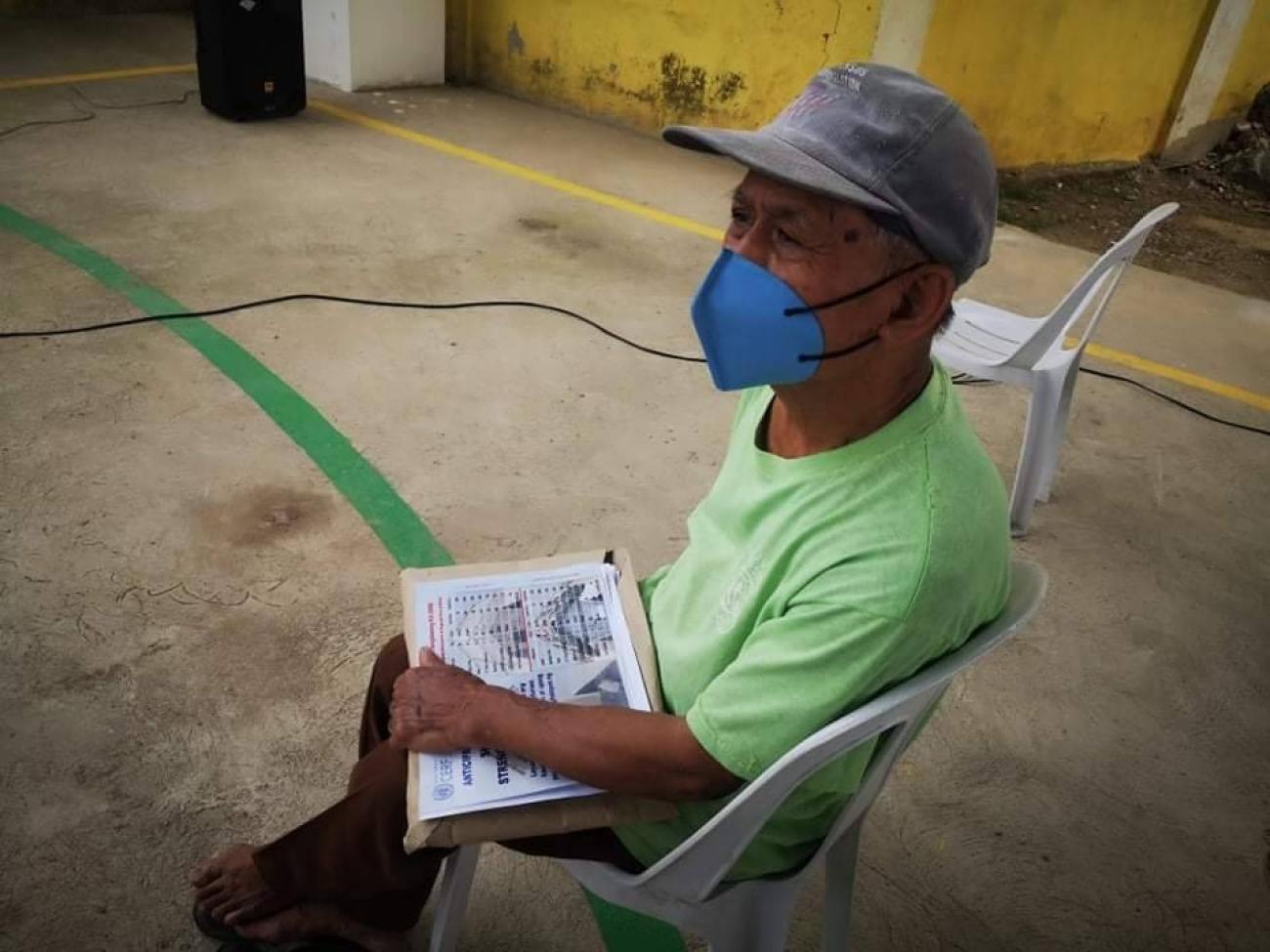The Anticipatory Action pilot in the Bicol Region is the first of its kind, putting the Philippines at the global forefront of humanitarian innovation
Manuelito is one of close to 280,000 target beneficiaries of the Anticipatory Action (AA) pilot in the Bicol Region and Eastern Visayas. The most vulnerable families will be provided with life-saving Cash-Based Intervention, with 13,110 vulnerable families set to receive support in terms of Camp Coordination and Camp Management (CCCM) and shelter. Through an inclusive approach, this is expected to reduce the number of persons displaced to evacuation centers as well as to adapt the response to the COVID-19 pandemic.
The AA pilot project is funded by the United Nations Central Emergency Response Fund (UN CERF). Coordinated by OCHA, it is being implemented by IOM, FAO, WFP, UNICEF and UNFPA, together with local partners. This project is the first of its kind for tropical storms, putting the Philippines at the global forefront of humanitarian innovation.
The objective of the pilot is to mitigate, and to a certain extent prevent, the impact of typhoons on people’s homes and livelihoods, while building on government’s mandatory pre-emptive evacuation procedures that save lives. With this intervention, the most at-risk communities will have better financial resources to prepare before typhoons make their landfall.
In coordination with local government units (LGUs), IOM teams have profiled and registered beneficiaries, conducted social preparation for the use of Shelter Strengthening Kits, and engaged with LGUs and communities to build knowledge of how AA can mitigate risk by increasing local response capacities.
“Tama nga ang sabi ng MDRRMO namin. Mas mabuti nang maging handa kaysa mag-ayos ng mga gamit na nasira.” (“Our MDRRMO [Municipal Disaster Risk Reduction and Management Office] was right. It’s better to prepare than repair.”)




